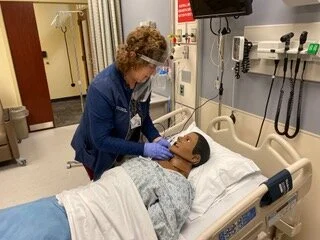
Practical 3D Design through Remote Learning with Fusion 360
When Reyce’s high school class had to immediately transition to remote learning in the spring, they did so without missing a beat. As the director of STEAM curriculum, Reyce had a backup plan to make sure her students continued to develop necessary skills in the world of STEAM education.
She had her students enroll in the Desktop Makes 3D Printing Design Academy course and they began the journey of learning how to design their own models for 3D printing from home. Each student would follow along with the online video lessons and would submit their assigned designs before moving on to the next model in the course.
Join Vladimir Mariano of Desktop Makes, Reyce Krause, and Perry Wolf, one of Reyce’s students, as they share what they learned in successfully transitioning to remote learning to teach students the valuable skill of 3D design.
Get the perspective from the course creator, the teacher, and the student. We’ll discuss what worked and what we would do differently so you can build from our experience.
Bios:
Vladimir Mariano has taught thousands of students how to create their own 3D models in Fusion 360 through his popular online courses. He also teaches the same material at the college level.
As a passionate maker, Vladimir currently runs two makerspaces - a community makerspace that he co-founded, and a college makerspace where he teaches students how to design with Fusion 360 and how to turn those designs into real objects through 3D printing, laser cutting, and CNC milling.
His work has been featured by Adafruit, Thingiverse, Hackaday, Makezine, Instructables, Shapeways, and Autodesk.
Reyce Krause is the Director of STEAM Curriculum at the Ma'ayanot Yeshiva High School for Girls where she coordinates the planning, development, and implementation of STEAM classes. She also runs the makerspace and teaches students in laser cutting, 3D printing, sewing, and more.
Perry wolf is a rising sophomore at the Ma'ayanot Yeshiva High School for Girls and one of Reyce’s students. Perry completed the 3D Printing Design Academy for the Classroom and Makerspace course through remote learning and will be joining us to share her experience.















